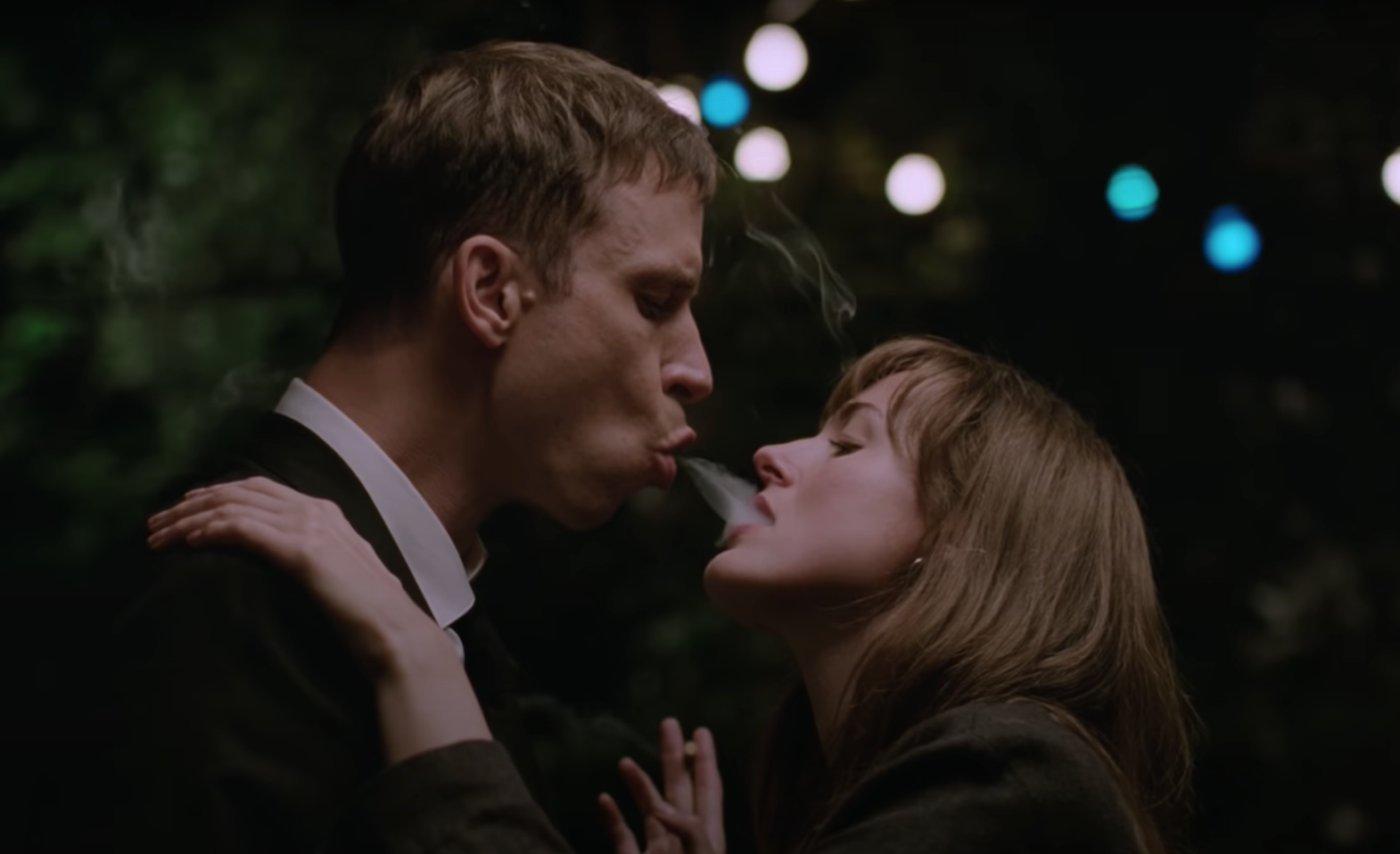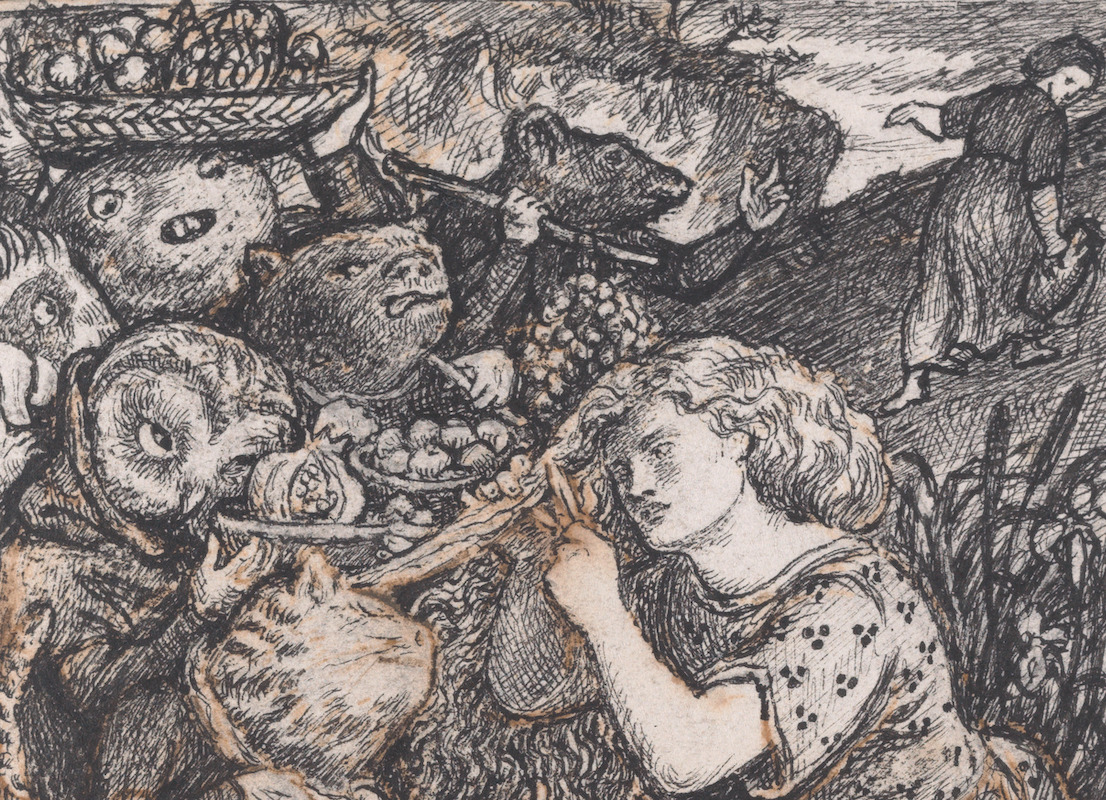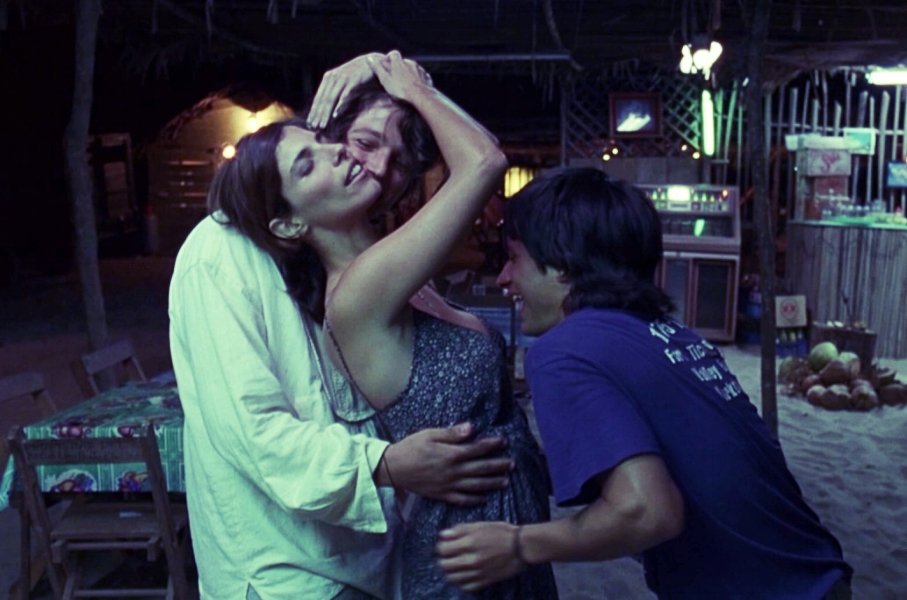Reading Lists
10 Books About Young Women in (and Out) of Love
Unravel questions of agency and desire in these queer, age-gapped, interracial, illicit, or toxic relationships

The best literary fiction is in some ways a simple character study. It is a roadmap into the interiority of a specific character: the way they think, how their identity impacts their relationships, and what decisions get made in response to the socio-political pressures shaping their lives. But literary fiction about young women too often gets miscategorized as women’s fiction or deemed frivolous, the needs and worries of these characters regarded as more rom-com than Camus. That topics of the body, the emotional, and the domestic are both undervalued and associated with women is no coincidence. But, internalized misogyny aside, I can think of little ground more fertile than being let into the psyche of a young woman in love.
Young, female narrators are at a point in which their futures are most malleable, where a relationship can shape the practical realities of their lives, or, perhaps more importantly, their sense of selves for years to come. The relationships in my own life have undoubtedly spurred my most intense introspection, forcing me to grapple with the space between who I am and who I want to be at times. When do we look most internally if not when trying to slot ourselves into someone else’s life, coming up with the ways in which that is and isn’t possible? When are we most in tune with the boundaries of our own bodies than when the people most formative to us leave? Relationships are inherently vulnerable and force us to confront our most and least powerful selves, often a delicate, dangerous balance of both.
Society overwhelmingly finds both youth and femininity trivial, but the stakes couldn’t be higher for the narrators of these ten novels. Their frighteningly intense unions (age-gapped, interracial, illicit, deliciously queer or devastatingly abusive) offer the first chance to reject the story laid out in front of them, about who they should be or what their life should look like—to recast themselves as agents of their own desire. These nuanced stories are less interested in happy endings than allowing the women at the heart of these dalliances to uncover how universal concerns can play out on the most intimate of stages.
The Idiot by Elif Batuman
This novel follows Turkish American Selin throughout her freshman year at Harvard and an ensuing summer of European travels. Selin completely understands the limits of her experiences and it is this self-awareness that allows for her brilliance as a narrator, her ability to interrogate society and her role in it as she falls in love for the first time. She unpacks the limits of language and culture in the same way she studies her feelings for older mathematics student Ivan, with whom she exchanges emails and ultimately follows to his native Hungary. In scrutinizing both intellectualism and desire, she unveils the very universal need to understand the world and be understood by it. In short, the book takes her seriously as a thinker, not in spite of her being a young woman in love, but because of it.
Sweetbitter by Stephanie Danler
22 feels like an outward facing age. We are looking outside of ourselves for romantic connection, for mentors in industries we’re not sure we’re sold on yet, for new friends to combat an existence that feels increasingly singular. And who better to guide us down that path than new-to-New York Tess, who lands a position as a backwaiter for an esteemed Manhattan restaurant. Her culinary education unfolds alongside an obsessive interest in the relationship between older, endlessly glamorous Simone and the mysterious bartender Jake. Tess is full of so much yearning—for Jake’s affection and Simone’s approval, sure, but also to belong in this hedonistic, cultured city and to not just partake in its various vices, but to actually enjoy them. And perhaps in all of this focusing on the other: the city, a complicated relationship she can’t quite penetrate, the needs of her customers and eclectic friends, Tess will come to understand herself a bit better. This is a visceral, gustatory read that centers pleasure-seeking in a young woman’s life.
Luster by Raven Leilani
Dating in your 20s is terrifying complicated. Between ever-changing rules and perilous apps, many young women make what others might call bad decisions and what we call Trying Our Best. Such is Edie’s dilemma when she breaks out of her Brooklyn bubble to date a middle-aged white man from New Jersey in an open marriage. After losing her job, Edie ends up moving in with the couple and their adopted daughter, who is also Black, paving the way for messy power relations, unlikely alliances, and misplaced affection. Dating is inseparable from identity, and we come to understand how Edie’s age, race, gender, and class play a role in her loneliness, her humiliations, her sense of self in this dysfunctional set-up.
Exciting Times by Naiose Dolan
In some ways, picking a relationship can be a way of picking a kind of life for yourself. Does an adventurous partner bring out that side of you? Does a more stable partner promise a different set of freedoms? Who can you become in relation to another? Such are the questions Irish millennial Ava must face while living as a grammar teacher in Hong Kong. She quickly moves into wealthy British banker Julian’s apartment and lets him treat her to a life of luxury. When, in Julian’s absence, she finds herself more compelled by local lawyer Edith, she must decide who she wants to be with and what that will mean for the shape of her life. This debut captures the ways in which romantic decisions expand beyond lust, giving weight to the fiscal and cultural calculations women often make when trying to negotiate for power as they build a life for themselves.
Acts of Service by Lillian Fishman
20-something Eve disrupts her safe partnership with a woman to post her nudes anonymously online, the first step in her following the thread of her many and demanding desires wherever they might take her. The post leads her into the uneasy and delicate relationship between a young woman and her boss, the power dynamics and lines more blurred than they might first appear. The shifting portrait of intimacy, moral responsibility, and ambiguity involved in navigating sex and relationships proves a profound current in Eve’s life, and her cerebral, philosophical interrogation of desire is nothing short of spell-binding. This debut depicts queerness as a kind of shared religion and complexity as the paradigm through which young people must now live.
Days of Distraction by Alexandra Chang
The narrator at the heart of Days of Distraction is a 24-year old Chinese American tech writer who, dissatisfied with her job and Silicon Valley, agrees to follow her longtime partner to upstate New York. The best writing about relationships works because it highlights the individual—when is someone more transparent, more aware of the shape of their identity than when intimately juxtaposed against another? When do someone’s differences, incompatibilities, defying experiences of the world come into greater conflict? Who can make someone feel the most seen, or hurt them the most by rendering them invisible? Alongside thoughful reflections on being a young woman in the workforce, this novel follows the narrator as she unpacks her Asian American identity, in her interracial relationship as well as the wider world.
Acts of Desperation by Megan Nolan
They say you have to date the wrong people in your 20s—but there’s wrong, and then there’s toxic. For those of us who have begged friends to get out of bad relationships and those of us still in therapy to make sense of our own experiences, Acts of Desperation is a perfect and suffocating exploration of an abusive relationship, following our unnamed narrator as she falls for the compelling yet cold writer, Ciaran. The writing is all sharp edges with the narrator’s heartbreaking response to rejection, to cruelty, to degradation turning political. Her retroactive commentary on this two-year-long relationship allows the patriarchy into this twisted love story, as she ruminates on the space between the feminist woman she believes herself to be and the treatment she allowed herself to endure. This portrait of isolation, alcoholism, disordered eating and the ways in which relationships can uphold and encourage toxic impulses feels equally apt for a confessional box as it does the debate stage.
You Made a Fool of Death with Your Beauty by Akwake Emezi
While many break-ups require mourning, Akwake Emezi explores genuine grief in their first dip into the romance genre. At 29, Feyi is ready to start dating again after losing her husband to a car accident five years ago. This isn’t a book for people looking to fall into the typical tropes of a romance novel—it’s something much more honest than that. Emezi subverts our expectations, allowing Feyi a whirlwind, messy, queer journey that takes us through various partners, Brooklyn apartments and tropical islands, public art exhibitions and private breakdowns. It allows love to be both heartbreaking and healing and doesn’t play down the weight of young relationships, how their loss can come to shape who we are as people as well as the connections and career-decisions we go on to make.
Our Wives Under the Sea by Julia Armfield
When Miri’s wife, Leah, doesn’t return from a deep sea research expedition for six months, Miri presumes her dead. The relief of her resurfacing is quickly overshadowed by the repercussions of the traumatic experience: namely, a Leah who is unrecognizable to Miri. This is a masterfully paced horror story, not only because Leah deteriorates into something not quite human in incremental, stunningly rendered beats, but also because the reader’s heart shatters in slow motion. This is a story about two women who love one another deeply, but whose experiences newly mark them as strangers to one another. While much of the reminisced upon love story depicts the women at a young age, this story’s relevance lies mostly in its ability to reflect the ways in which one partner often outgrows the other in young relationships. The tension between the active love these women share and their total inability to connect in the present moment proves an unstoppable current, dragging readers to a dark and scary place where the people we love most aren’t immune to change. A place where grief and love can coexist tenderly but, ultimately, not successfully.
Conversations with Friends by Sally Rooney
Conversations with Friends is as much about being in romantic love as it is being in love with your friends. Best friends Frances and Bobbi used to date, and the shadow of their falling out of love, into friendship, perhaps back in love, haunts the more obvious plotline: that of the girls befriending married couple Nick and Melissa, and Frances getting drawn into an intimate and compelling relationship with Nick. This novel feels like being young. It is college friendships and summer trips, intellectual conversations where you feel sure of your position and everyday interactions where you feel lost to your own desires. It is selfishness in pursuing connection alongside an earnest effort to prove yourself a good person (no small feat in a world that is nothing if not intent on policing the morality of young women). This well-adored book captures love as the ultimate oxymoron: easy to fall into and impossibly difficult to navigate, often fleeting but with everlasting implications, an ultimate joy and the quintessential heartbreak. Above all, it promises that even when it all feels like too much, when the vulnerability of the experience proves overbearing, it’s a worthwhile endeavor in the making of a life.








